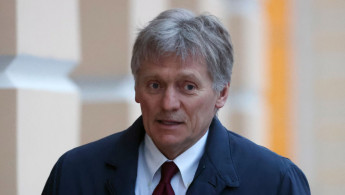Russia: Kremlin expresses concern over Niger after Wagner chief celebrates coup
The Kremlin expressed concern on Monday over the situation in Niger, whose president was ousted last week in a coup that was condemned by many countries but welcomed by the head of Russia's mercenary Wagner group, which has extensive interests in Africa.
In a call with reporters, Kremlin spokesman Dmitry Peskov said "what is happening [in Niger] is a matter of serious concern".
"We are in favour of the speedy restoration of the rule of law in the country, we are in favour of restraint on all sides so that this does not lead to human casualties," Peskov said.
Niger coup leaders declared General Abdourahamane Tiani as the new head of state last Friday, days after saying they had ousted President Mohamed Bazoum in the seventh military takeover in West and Central Africa in less than three years.
West African nations have imposed sanctions and threatened force if the coup leaders fail to reinstate Bazoum within a week.
In a voice message published last week on social media channels linked to Russia's mercenary Wagner Group, its founder Yevgeny Prigozhin appeared to endorse the coup, and to offer the services of his fighters to the junta.
Wagner's role
Prigozhin did not claim involvement in the coup, but described it as a moment of long overdue liberation from Western colonisers.
Prigozhin's relationship with the Kremlin has been unclear since he staged a failed mutiny last month aimed at ousting long-time rivals in the defence ministry in Moscow.
However, his Wagner Group remains a key player in Russia's foreign policy in Africa. It has become an influential force in Niger's neighbour Mali since a 2021 coup there, and has a longer-standing presence in Central African Republic and Libya.
Wagner's role in Africa is a source of concern for Western governments. The United States has accused the group of atrocities and imposed sanctions on it. Prigozhin says it works lawfully.
Prigozhin appears to continue to enjoy freedom of movement despite what the Kremlin said last month was a post-mutiny deal that would see him relocate to neighbouring Belarus where some of his men have already started training the army.
(Reuters)




 Follow the Middle East's top stories in English at The New Arab on Google News
Follow the Middle East's top stories in English at The New Arab on Google News
![A group of Palestinians, foreign and Israeli activists gather to participated in an olive picking event on the land in the town of Battir, which is under threat of confiscation by Israel in Bethlehem, occupied West Bank on 8 November 2024. [Getty]](/sites/default/files/styles/image_330x185/public/2182930803.jpeg?h=199d8c1f&itok=__0LgGsa)

![People gathered around the rubble of destroyed houses to search for survivors [Getty]](/sites/default/files/styles/image_330x185/public/2024-11/GettyImages-2184733820.jpg?h=199d8c1f&itok=NiM1LO2f)